Infusion Clinics (ICs) are tasked with the challenge of achieving operational efficiency while contending with competitive pressures, patient care complexities, and regulatory obligations. As these clinics evolve to meet changing demands, pharmaceutical manufacturers have an opportunity to provide more targeted assistance. Whether it’s simplifying access to treatments or championing policy advancements, manufacturers play a crucial role in helping ICs optimize patient care, boost operational performance, and maintain compliance. Let’s hone in on three areas where ICs face challenges and consider practical ways to address them.
1. Competition Comes in Various Forms
Competition in the infusion clinic space presents itself in various ways. For instance, some specialty pharmacies and PBMs require that medications be processed externally, which can create competition for ICs and reduce their profit margins. To mitigate this, clinics might consider hiring in-house pharmacists to handle these processes internally. Additionally, other clinics distinguish themselves by offering exceptional services, such as reducing wait times, assisting with transportation, providing quick access to translators, and offering private rooms tailored to families and children.
Clinics that excel at observing patient behavior, recognizing unspoken needs, and addressing potential issues before they arise also stand out. Beyond these operational efforts, creating a comfortable and welcoming environment, along with simple acts of kindness, can greatly enhance the patient experience. Recognizing the anxiety, long appointments, and discomfort that patients often face can help build trust and ease fears.
2. Optimizing Operations to Enhance the Patient Experience
Harnessing AI for Better Scheduling: Although many infusion clinics are slow to adopt artificial intelligence, it holds the potential to greatly enhance scheduling systems and streamline operations.
The Critical Role of Staff Training: Well-trained staff are fundamental to clinic success. Beyond technical knowledge, soft skills like communication and empathy are critical for fostering trust with patients.
In-House Prior Authorization Expertise: Having an in-house expert in prior authorizations is invaluable. These professionals are well-versed in insurance processes, coding, and coverage intricacies, helping to avoid the costly mistake of uncovering coverage issues after an infusion has been administered.
Addressing Scheduling Inefficiencies: Frequent adjustments to schedules can create operational disruptions, such as wasting medications that are prepared too early if an appointment gets postponed. Addressing these challenges can improve both clinic efficiency and the patient experience.
3. The Importance of Compliance
Maintaining compliance requires strong external support to keep up with ongoing education, including HIPAA training, as well as ensuring processes are validated and consistently monitored. Missteps in any of these areas can result in serious financial consequences.
Managing the Tension Between Optimal and Realistic Operations
For those working within infusion clinics, the challenge of balancing ideal practices with real-world limitations is ever-present. While the need for operational improvements may be clear, the path to change can be intimidating, often requiring a temporary step back before real progress can be achieved.
Here are strategies for pharmaceutical manufacturers to provide better support to infusion clinics:
Simplifying Medication Access
- Simplify Prior Authorizations: Collaborate with payers to streamline the prior authorization process. Providing templates or tools to help ICs gather necessary documentation quickly can minimize treatment delays.
- Understand Payer Specifics: Become familiar with the nuances of different payers. For instance, knowing that certain payers frequently deny PAs on the first attempt can help ICs stay persistent and avoid unnecessary setbacks.
Strengthen Communication and Partnerships
- Dedicated Support Teams: Create specialized support teams to offer ICs quick access to information on medications, coverage issues, and patient support programs.
- Regular Updates and Training: Keep IC staff informed about changes in medication protocols, reimbursement codes, or regulatory requirements through regular updates and ongoing training.
- HR Assistance: Provide tips and resources to help clinics hire staff with the right mix of technical expertise and soft skills.
Promote Supportive Policy Initiatives
- Policy Advocacy: Engage in efforts to promote policies that benefit ICs, such as ensuring fair reimbursement rates and reducing regulatory hurdles.
- Expand Access to Care: Advocate for improved access to infusion therapies, particularly for underserved communities, by lobbying for better insurance coverage and expanding benefits like Medicare/Medicaid for these services.
Foster Networking and Knowledge Exchange
- Host Workshops and Events: Organize or sponsor workshops, webinars, and conferences that allow IC professionals to exchange best practices, address common challenges, and build connections.
- Develop Knowledge Sharing Platforms: Create an online platform where ICs can collaborate, share insights, and learn from each other’s experiences.
Customize Solutions for Infusion Clinics’ Unique Needs
- Customize Support: Understand that ICs vary in size and structure, and provide tailored solutions that meet the unique needs of each clinic, whether they are small independents or part of larger systems.
- Feedback Channels: Set up mechanisms for ICs to provide feedback on products and services, using this input to continually enhance offerings and address new challenges.
By adopting these strategies, even incrementally, pharmaceutical manufacturers can significantly contribute to improving the efficiency, effectiveness, and long-term success of infusion clinics, which in turn enhances patient care and outcomes.
About KS&R
KS&R is a nationally recognized strategic consultancy and marketing research firm that provides clients with timely, fact-based insights and actionable solutions through industry-centered expertise. Specializing in Business Services, Telecom, Entertainment & Recreation, Healthcare, Retail & E-Commerce, Technology, and Transportation & Logistics verticals, KS&R empowers companies globally to make smarter business decisions. For more information, please visit www.ksrinc.com.


